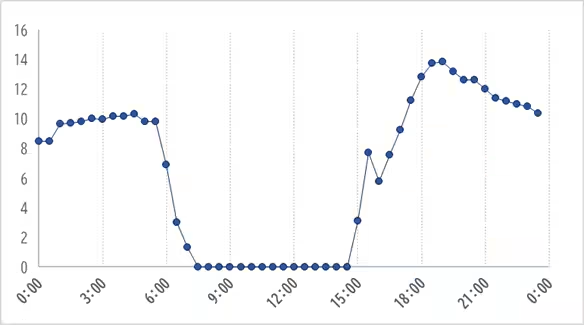

Looop Partners with Japan's Ministry of Environment to Boost Daytime Renewable Energy Demand through Innovative Models
Looop Collaborates with the Ministry of Environment
In a strategic move to enhance the adoption of renewable energy, the company Looop, headquartered in Taito, Tokyo, has partnered with Japan's Ministry of the Environment on an initiative dubbed "Deco-Katsu". This campaign is directed towards creating a new, rich lifestyle that contributes to decarbonization. Specifically, they have secured a contract for the "Model Verification for Creating Demand for Surplus Renewable Energy during Daytime (Utilizing Market-Linked Electricity Rate Plans)" for the fiscal year 2025. This marks Looop's second consecutive year of participation in this significant project.
Background of the Initiative
Achieving carbon neutrality is heavily reliant on the proliferation of renewable energy sources. However, a major challenge is that electricity supply often surpasses demand during sunny daytime hours, leading to the temporary cessation of renewable energy generation via a process called "output control." To combat this, "Demand Response (DR)" strategies are drawing attention. These techniques aim to balance electricity supply and demand by managing consumption according to renewable generation rates.
Looop's electricity service, known as "Smart Time ONE," features a market-linked pricing plan that adjusts electricity rates every 30 minutes based on the market price. By promoting the use of electricity during the day when solar energy is abundant and rates are likely lower, this plan helps in both reducing customer expenses and maximizing the utilization of renewable energy. Its efficacy has led to its inclusion in the government’s trial program.
Demand Response Types: In the context of this initiative, Demand Response consists of several types:
- - "Upward DR": Encouraging the use of electricity when renewable energy is abundant.
- - "Downward DR": Reducing usage during peak hours when electricity is scarce.
- - "Behavioral DR": Manual adjustments made by users in their electricity usage.
- - "Controlled DR": Automated management of device usage based on energy supply.
Details of the Verification Trials
The verification comprises two main components:
Test 1: Behavioral DR through the Looop Electricity App
In this phase, Looop electricity users will receive recommended actions tailored to their specific attributes via the Looop app. The aim is to verify the effectiveness of the "Upward DR" by incentivizing users according to their DR activities.
- - Application Period: September 2025
- - Testing Duration: October to November 2025
- - Trial Plan: Looop Electricity “Smart Time ONE (Lighting)”
- - Focus: Evaluating cost-saving effects, DR volumes, and actual DR activities.
Test 2: Automated Market-Linked Control for EVs and Eco-Cute Water Heaters
For users who own Electric Vehicles (EVs) and Eco-Cute water heaters, this component will automatically manage charging and heat-up processes during times of low market prices. This pilot represents the first domestic verification of auto-controlled devices according to market electricity pricing. Looop will collaborate with Kaluza Japan for EV charging and LiveSmart for controlling Eco-Cute operations.
- - Application Period: July 14 – July 31, 2025
- - Testing Duration:
- Eco-Cute Verification: November 1, 2025 – December 25, 2025
- - Trial Plan: Looop Electricity “Smart Time ONE (Lighting)”
- - Areas Covered: Tokyo Electric Power, Chubu Electric Power, Kansai Electric Power regions
- - Devices Involved:
- Eco-Cute: Panasonic, Daikin, Mitsubishi Electric models compatible with ECHONET Lite standards.
Details regarding the results of this initiative will be presented in a press conference scheduled after the conclusion of the tests.
Comments from Key Officials
Shimizu Nobuhiko, Head of the Decarbonization Lifestyle Promotion Office at the Ministry of Environment, highlighted that the expansion of renewable energy adoption has led to a rise in output control across Japan. He pointed out that fostering daytime electricity demands will help mitigate these issues, and emphasized the ministry's commitment to showcasing the benefits of increased daytime electricity usage to consumers.
Nakamura Soichiro, CEO of Looop, reiterated the company’s vision of realizing an "energy-free society". He stressed the need for integrating renewable energies not only through expanding power generation but also by implementing robust storage systems and Demand Response initiatives.
About Looop and Smart Time ONE
Looop operates as an electricity retailer and offers the "Smart Time ONE" plan, which encourages users to shift their electricity usage to daytime hours when solar energy is more abundant and costs are lower. This initiative not only helps reduce consumer utility bills but also plays a crucial role in fostering a sustainable energy environment. Users can easily check cheaper rates and anticipated monthly bills through the Looop Electricity app, promoting eco-friendly energy consumption.
Founded in April 2011, Looop has been at the forefront of promoting renewable energy, beginning its journey by providing electricity through solar power to communities affected by the Great East Japan Earthquake. The company is committed to leveraging both renewable energy and technology to create innovative energy experiences for all.




Topics Environment)










【About Using Articles】
You can freely use the title and article content by linking to the page where the article is posted.
※ Images cannot be used.
【About Links】
Links are free to use.